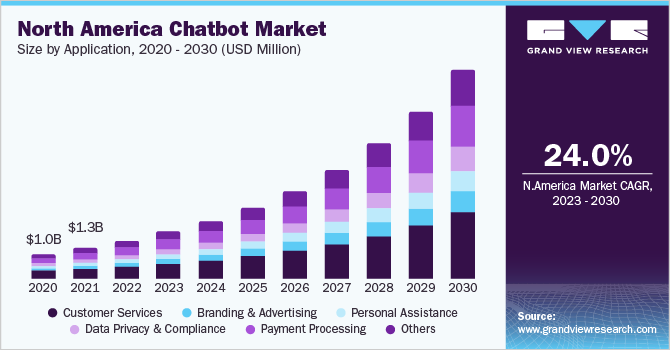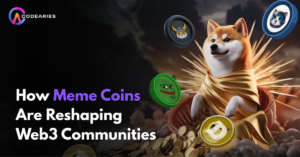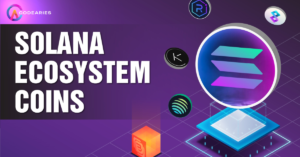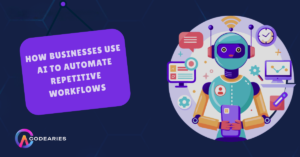In today’s world, the conjunction of artificial intelligence (AI) and blockchain technology is exponentially becoming a focal point for innovation. The rise of decentralized AI chatbots is a prime example of how these two disruptive technologies can collaborate, paving the way for enhanced privacy, scalability, and trust in communication systems. While AI chatbots have already started transforming business-customer interactions, integrating blockchain into their framework promises a revolutionary shift, ensuring these systems operate without central authority.
In this article, we will explore the essential concepts behind decentralized AI chatbots, the role of blockchain in enabling these systems, and the various advantages they offer.
What Are Decentralized AI Chatbots?
Decentralized AI chatbots are conversational agents powered by artificial intelligence that utilizes blockchain technology to function across a distributed network. Unlike traditional AI chatbots, which rely on centralized servers for data processing and storage, these decentralized systems harness the power of blockchain’s distributed ledger to eliminate the risk of a single point of failure. Doing so enhances security, immutability, and transparency, enabling trustless interactions between users and chatbots. The global chatbot market size was estimated at USD 5,132.8 million in 2022 and is expected to expand at a compound annual growth rate (CAGR) of 23.3% from 2023 to 2030.
This architecture significantly reduces the risk of cyberattacks and data breaches, as user interactions are securely recorded on the blockchain. Moreover, users have greater control over their data, ensuring that their information is handled with transparency.
Blockchain Technology: An Overview
Blockchain is a decentralized ledger technology that records transactions across a network of computers in a tamper-proof way. Each data block is cryptographically linked to the previous one, creating a secure chain. Initially designed to facilitate cryptocurrencies like Bitcoin, blockchain’s utility has expanded into various domains, including supply chain management, finance, and AI.Key features such as decentralization, immutability, and transparency make blockchain an ideal foundation for decentralized AI chatbots. By distributing data across multiple nodes, blockchain mitigates the risks associated with centralized control, preventing any single entity from manipulating the chatbot’s operations.
The Importance of Decentralization in AI
Centralized AI systems often face significant data privacy, transparency, and security concerns, particularly when handling sensitive information. They can also struggle with scalability and become overwhelmed by high user demand.Decentralized AI chatbots overcome these challenges by distributing data across a blockchain network. This design enhances security and ensures that the chatbot remains operational even if one or more nodes fail. As a result, users benefit from a more reliable and private interaction experience.
Advantages of Decentralized AI Chatbots
The development of decentralized AI chatbots using blockchain technology brings numerous advantages:
Enhanced Security and Privacy
- User Data Control: With decentralized systems, users maintain authority over their data, significantly reducing the chances of data breaches and unauthorized access.
- Distributed Data Storage: Information is spread across various nodes, making it harder for malicious entities to infiltrate and compromise the system.
Increased Transparency and Trust
- Open-Source Development: Many decentralized AI models are open-source, allowing for greater visibility and scrutiny from the community.
- Trustless Interactions: Users can engage with the chatbot without depending on a central authority, fostering a stronger sense of trust.
Democratized AI Development
- Broad Accessibility: The open nature of decentralized systems allows anyone to contribute to the chatbot’s development, promoting inclusivity in AI.
- Community-Driven Design: The chatbot evolves based on the preferences and needs of its user community, ensuring it remains relevant and practical.
Resilience and Fault Tolerance
- Distributed Architecture: Should one node fail, the chatbot can continue functioning through other active nodes, enhancing reliability.
- Resistance to Censorship: Decentralization makes it more challenging for external entities, like governments or corporations, to control or censor the chatbot’s operations.
Incentivized Participation
- Token-Based Rewards: Decentralized chatbots can implement token systems to motivate users to participate and contribute.
- Incentives for Contribution: Users can receive rewards for providing data, developing enhancements, or giving feedback, creating a participatory ecosystem.
Improved Performance
- Quicker Response Times: By distributing processing tasks among multiple nodes, decentralized systems can achieve faster response times.
- Effective Scalability: These chatbots can more readily scale to meet increasing demand without compromising performance.
Enhanced Customization
- Tailored Experiences: Decentralized AI chatbots can be personalized to suit individual user preferences and requirements.
- Customization Capabilities: Users can modify the chatbot’s behaviour and features according to their needs.
Smart Contracts in AI Chatbot Development
Smart contracts are revolutionizing the capabilities of AI chatbots, transforming them into robust and reliable digital companions. Imagine a chatbot that responds to your queries and does so with the assurance that every interaction is secure and transparent, thanks to blockchain technology. These self-executing contracts embed terms directly into code, ensuring that every chat is verifiable and reducing the chances of fraud or disputes.With smart contracts, tedious processes like payments and data sharing are automated, streamlining operations and saving valuable time—no more waiting for manual approvals! The decentralized nature of blockchain means that once a transaction is recorded, it’s immutable, safeguarding against tampering and boosting your confidence in the chatbot’s integrity.
Potential Use Cases of Smart Contracts in AI Chatbots
- Payment Processing: Securely handle payments for chatbot services or products.
- Data Sharing: Facilitate data sharing between users and the chatbot in a privacy-preserving manner.
- Task Automation: Automate tasks such as scheduling appointments, sending reminders, or executing specific actions based on predefined conditions.
- Reputation Systems: Implement a decentralized reputation system to track and reward the behaviour of users and chatbots.
- Decentralized AI Governance: Enable decentralized governance of AI models by allowing users to vote on updates and improvements.
Tokenization: Incentivizing Development
Tokenization, transforming assets or services into digital tokens on a blockchain, presents a dynamic approach to incentivizing the development of AI chatbots and fostering innovation. Blockchain technology can cultivate a thriving ecosystem that promotes continuous enhancement and broader adoption of AI chatbots by introducing tokens that reward developers, contributors, and users.
Key Benefits of Tokenization in AI Chatbot Development
Community-Driven Innovation:
- Incentivized Participation: Tokens can be awarded to individuals who contribute to chatbot development, whether by supplying data, creating new functionalities, or helping to identify and fix issues.
- Increased Engagement: By offering token-based rewards, communities can become more active and collaborative, spurring innovation and creative solutions.
Transparent Governance:
- Decentralized Decision-Making: Token holders gain the ability to vote on significant developmental choices, ensuring that the community’s voice is heard and valued.
- Fairness and Transparency: The inherent transparency and immutability of blockchain reduce the likelihood of any single entity skewing the governance process.
Economic Sustainability:
- Revenue Generation: AI chatbots can create income through various channels, like offering premium features or monetizing data. Tokens can be a mechanism for distributing these revenues among contributors and stakeholders.
- Long-Term Viability: Tokenization helps sustain AI chatbot development projects by providing ongoing financial incentives, ensuring their viability over time.
Enhanced User Experience:
- Personalized Rewards: Tokens can reward users for engaging with the chatbot, providing valuable feedback, or completing designated tasks.
- Gamification: Introducing token incentives can make the user experience more engaging and enjoyable, transforming interactions into a game-like environment.
Potential Tokenization Models for AI Chatbots
- Governance Tokens: These tokens give holders voting rights, allowing them to influence the chatbot’s development trajectory.
- Utility Tokens: Users can leverage these tokens to access specific features or services within the chatbot ecosystem.
- Reward Tokens: These tokens recognize and reward users or contributors for their active participation and valuable contributions.
Case Studies of Successful Decentralized AI Chatbots
Although the realm of decentralized AI chatbots is still emerging, several notable examples illustrate their potential:MediBloc
- Industry: Healthcare
- Objective: Decentralized electronic health records (EHRs)
- Outcome: MediBloc has developed a blockchain-based system that empowers patients to store and manage their medical data securely. This platform enhances privacy and gives users greater control over their health information.
- Industry: Artificial Intelligence
- Objective: Autonomous decentralized AI agents
- Outcome: Fetch.ai has launched a platform that facilitates the creation and deployment of independent AI agents capable of interacting with one another and with humans. These agents serve various functions, including customer service, supply chain optimization, and financial transactions.
- Industry: Data Marketplace
- Objective: Decentralized data sharing
- Outcome: Ocean Protocol enables data owners to monetize their datasets while ensuring privacy and control. The platform supports secure and transparent data transactions using blockchain technology, promoting a trustworthy data marketplace.
- Industry: Cybersecurity
- Objective: Blockchain-based timestamping
- Outcome: Guardtime has created a platform that employs blockchain technology to provide tamper-proof timestamps for digital documents. This solution is essential for verifying data authenticity and integrity, particularly in sectors like healthcare and finance.
Conclusion
Integrating AI and blockchain technology to develop decentralized AI chatbots offers a promising future for conversational systems. These chatbots are poised to transform industries ranging from finance to customer service by enhancing security, privacy, and scalability. As this technology continues to grow, we can anticipate a new era of communication that prioritizes user trust and data integrity. Whether you’re a developer or a business leader, understanding how to leverage these advancements could be vital to staying ahead in the digital age.
FAQS
What is the future of AI in crypto?
The future of AI in cryptocurrency is promising. AI can enhance security, trading strategies, and user experiences by analyzing data for better decision-making, detecting fraud, and optimizing processes in decentralized finance (DeFi). As these technologies evolve, innovative applications are expected to drive growth in the crypto space.
Does Generative AI use blockchain technology?
Generative AI doesn’t inherently use blockchain, but the two can complement each other. Blockchain can secure and verify the ownership of content created by generative AI, ensuring provenance and preventing unauthorized use.
Is a chatbot a generative AI?
Yes, many chatbots are a form of generative AI. They use natural language processing to generate responses based on user input, analyzing context and intent to produce relevant replies.
Which is the most advanced AI chatbot?
OpenAI’s ChatGPT, based on the GPT-4 architecture, is among the most advanced AI chatbots. It excels in engaging conversations and generating contextually relevant responses. Other notable contenders include Google’s Bard and Anthropic’s Claude, each offering unique features and capabilities.






